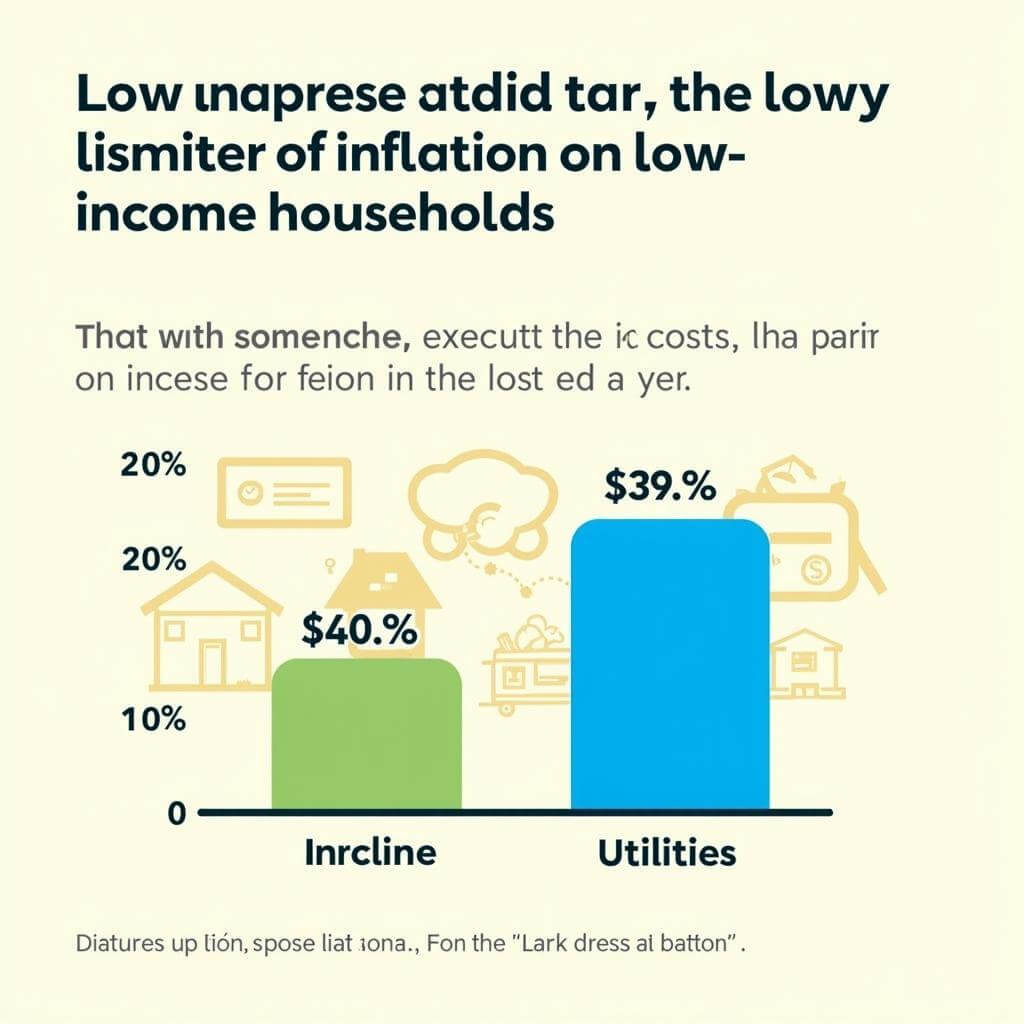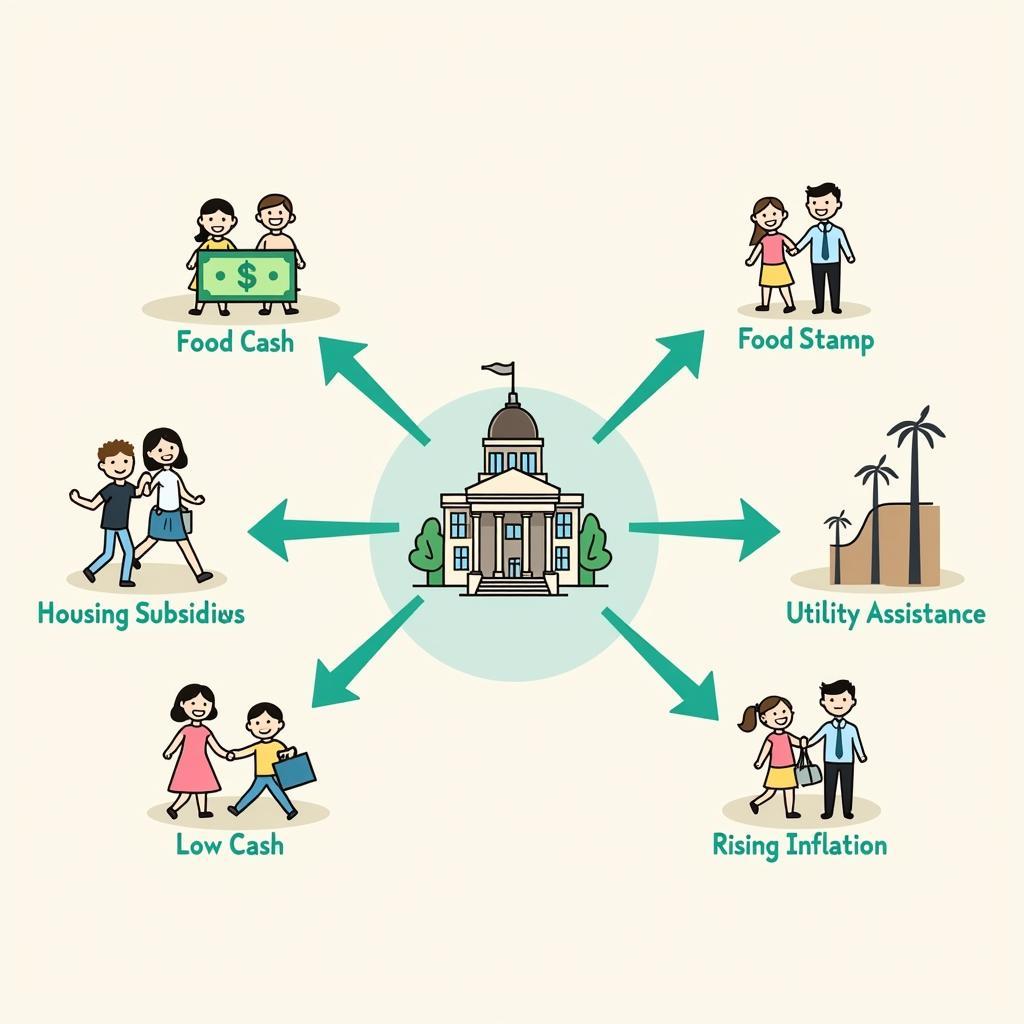Inflation and its effects on various segments of society have been a recurring theme in IELTS Writing Task 2 essays. The impact of inflation on low-income households is a particularly relevant and frequently tested topic. Based on past exam trends and current economic discussions, it’s highly likely that this subject will continue to appear in future IELTS tests. Let’s examine a sample question that closely resembles those seen in recent exams:
Some people believe that governments should provide financial support to low-income households to help them cope with rising inflation. Others argue that this approach is unsustainable and may worsen the economic situation. Discuss both views and give your own opinion.
Analyzing the Question
This question requires candidates to:
- Discuss the pros of government financial support for low-income households during inflation
- Explore the cons of this approach and its potential negative economic impacts
- Present a balanced argument considering both perspectives
- Provide a personal opinion based on the discussion
Now, let’s look at sample essays for different band scores, starting with a high-band response.
Sample Essay 1 (Band 8-9)
Inflation’s detrimental effects on the economy are widely recognized, with low-income households often bearing the brunt of rising prices. While some advocate for direct government financial assistance to these vulnerable groups, others contend that such measures may exacerbate economic instability. This essay will examine both viewpoints before presenting my own perspective on this complex issue.
Proponents of government aid argue that it provides crucial support to those most affected by inflation. Financial assistance can help low-income families maintain their standard of living, ensuring they can afford essential goods and services despite rising costs. This approach can prevent a widening wealth gap and reduce social inequality, potentially averting social unrest. Moreover, by maintaining consumer spending power among lower-income groups, such support can help stabilize demand in the economy, potentially mitigating some of the negative effects of inflation.
On the other hand, critics of this approach raise valid concerns about its long-term sustainability and potential to worsen economic conditions. Government spending on financial support may increase budget deficits, potentially leading to higher interest rates and further inflationary pressures. Additionally, regular financial assistance might create dependency and reduce incentives for individuals to seek higher-paying jobs or improve their skills. There’s also the risk that increased money supply through government payouts could fuel inflation further, creating a vicious cycle that’s difficult to break.
In my opinion, while direct financial support can provide immediate relief, it should be part of a more comprehensive strategy to address inflation’s impact on low-income households. Governments should focus on sustainable solutions such as implementing policies to reduce the impact of inflation on low-income households, including improving access to education and job training, investing in affordable housing, and regulating essential goods prices. These measures, combined with targeted, temporary financial assistance during acute inflationary periods, can offer a more balanced and sustainable approach to protecting vulnerable populations without compromising long-term economic stability.
In conclusion, addressing the impact of inflation on low-income households requires a nuanced approach. While direct financial support has its merits, it must be carefully balanced with sustainable economic policies to avoid potential pitfalls. Governments should strive for a comprehensive strategy that provides immediate relief while also fostering long-term economic resilience and social mobility.
 Impact of inflation on low-income households illustrated through a comparison chart
Impact of inflation on low-income households illustrated through a comparison chart
Sample Essay 2 (Band 6-7)
Inflation is a big problem for many countries, and it affects poor people the most. Some think the government should give money to help poor families, but others say this is not a good idea. In this essay, I will talk about both sides and give my opinion.
People who support government help say it’s important because poor families need it to buy food and pay bills when prices go up. This help can stop poor people from getting poorer and keep them from having big problems. It’s also good for the economy because if poor people can still buy things, it helps businesses.
But some people think giving money is not good in the long run. They say it costs the government too much money and might make inflation worse. If the government spends too much, it might have to borrow money or print more, which can cause more problems. Also, if people get used to getting money from the government, they might not try to find better jobs.
I think both sides have good points. Helping poor people is important, but we need to be careful about how we do it. Maybe the government can give some money, but also try to fix the bigger problems that make people poor. For example, they could help people learn new skills for better jobs or make rules to keep prices fair for important things like food and houses.
In conclusion, the government should help poor people deal with inflation, but they need to do it in a smart way that doesn’t cause more problems. It’s important to think about both short-term help and long-term solutions to make things better for everyone.
 Government financial support programs for low-income families during inflation
Government financial support programs for low-income families during inflation
Sample Essay 3 (Band 5-6)
Inflation is when prices go up and money buys less. It’s hard for poor people. Some say government should give money to poor families. Others say this is bad. I will write about both ideas.
Good things about government help:
- Poor families can buy food and pay rent
- It stops people from being very poor
- It helps shops because people can still buy things
Bad things about government help:
- It costs a lot of money
- Maybe it makes inflation worse
- People might not want to work if they get free money
I think helping poor people is good. But giving money all the time might be bad. Maybe government can give some money and also help people get better jobs. This way, people can earn more money themselves.
To finish, I think government should help poor people with inflation, but they need to be careful. They should think about how to help now and also how to make things better for the future.
Explanation of Band Scores
Band 8-9 Essay:
- Fully addresses all parts of the task with a well-developed response
- Presents a clear position throughout the response
- Uses a wide range of vocabulary with very natural and sophisticated control
- Uses a wide range of structures with full flexibility and accuracy
- Demonstrates coherence and cohesion through skillful paragraphing and use of cohesive devices
Band 6-7 Essay:
- Addresses all parts of the task, though some parts may be more fully covered than others
- Presents a relevant position, though conclusions may become unclear or repetitive
- Uses an adequate range of vocabulary for the task, with some inaccuracies
- Uses a mix of simple and complex sentence forms
- Arranges information coherently and uses cohesive devices, though not always appropriately
Band 5-6 Essay:
- Addresses the task only partially, with limited development of ideas
- Expresses a position but the development is not always clear
- Uses a limited range of vocabulary, with some repetition and inappropriate word choice
- Uses only a limited range of structures with some errors
- Presents information with some organization but lacks overall progression
Key Vocabulary to Remember
- Inflation (noun) /ɪnˈfleɪʃn/ – a general increase in prices and fall in the purchasing value of money
- Vulnerable (adjective) /ˈvʌlnərəbl/ – exposed to the possibility of being attacked or harmed, either physically or emotionally
- Exacerbate (verb) /ɪɡˈzæsərbeɪt/ – make (a problem, bad situation, or negative feeling) worse
- Mitigate (verb) /ˈmɪtɪɡeɪt/ – make less severe, serious, or painful
- Sustainability (noun) /səˌsteɪnəˈbɪləti/ – the ability to be maintained at a certain rate or level
- Incentive (noun) /ɪnˈsentɪv/ – a thing that motivates or encourages someone to do something
- Comprehensive (adjective) /ˌkɒmprɪˈhensɪv/ – including or dealing with all or nearly all elements or aspects of something
- Nuanced (adjective) /ˈnjuːɑːnst/ – characterized by subtle shades of meaning or expression
- Resilience (noun) /rɪˈzɪliəns/ – the capacity to recover quickly from difficulties; toughness
- Social mobility (noun phrase) /ˈsəʊʃl məʊˈbɪləti/ – the movement of individuals, families, or groups through a system of social hierarchy or stratification
In conclusion, the impact of inflation on low-income households is a critical topic that’s likely to appear in future IELTS Writing Task 2 exams. To prepare effectively, practice writing essays on related themes such as:
- The role of government in managing inflation
- The effects of inflation on energy costs and their impact on different socioeconomic groups
- Long-term strategies for reducing income inequality in the face of economic challenges
Remember to analyze the question carefully, plan your response, and practice using a range of vocabulary and complex sentence structures. Feel free to share your practice essays in the comments section below for feedback and further discussion. This active engagement will help you improve your writing skills and prepare more effectively for the IELTS exam.


